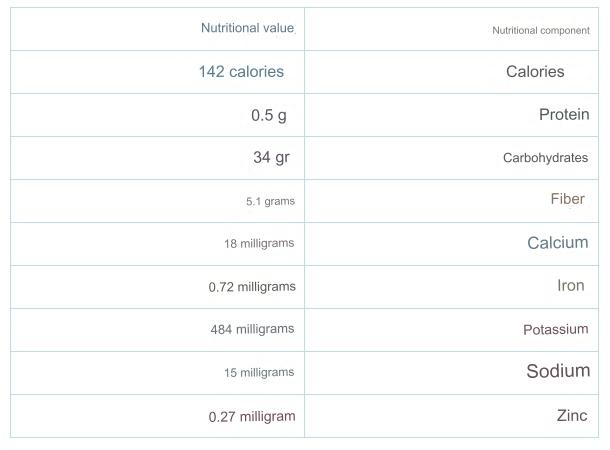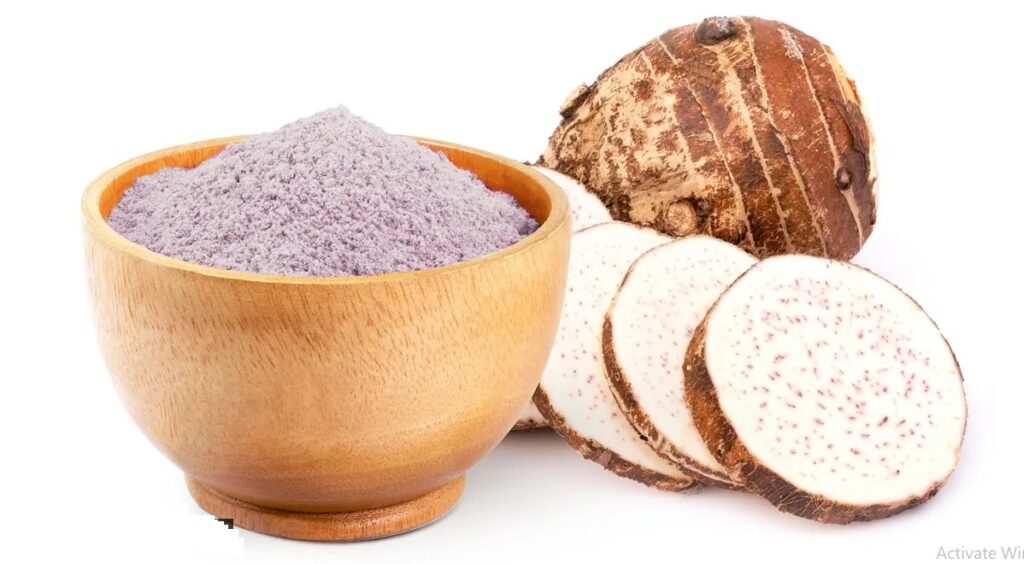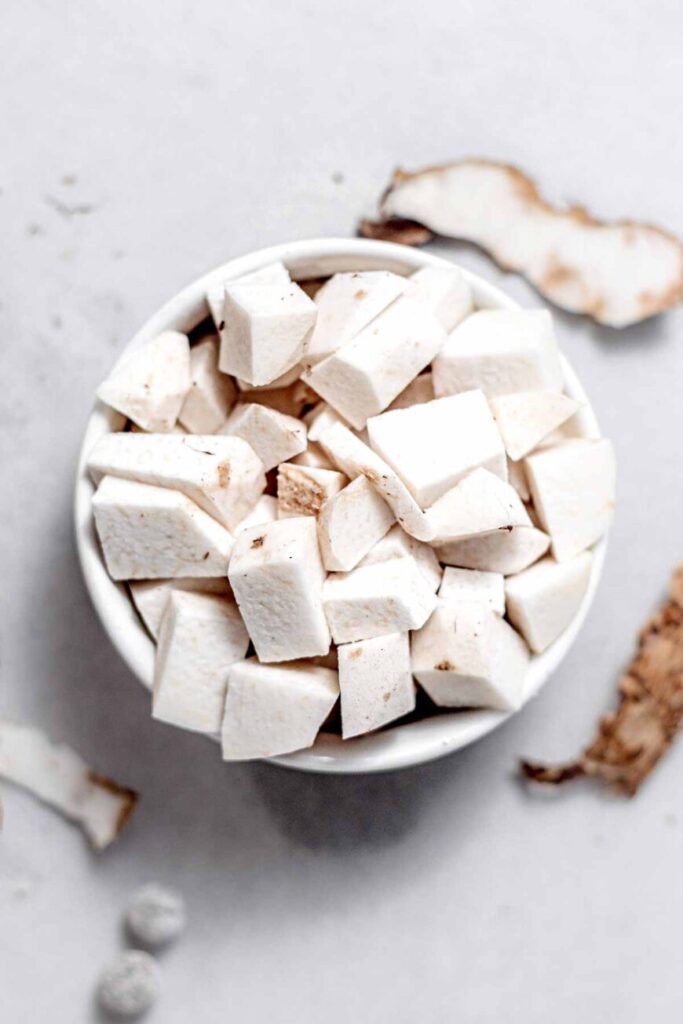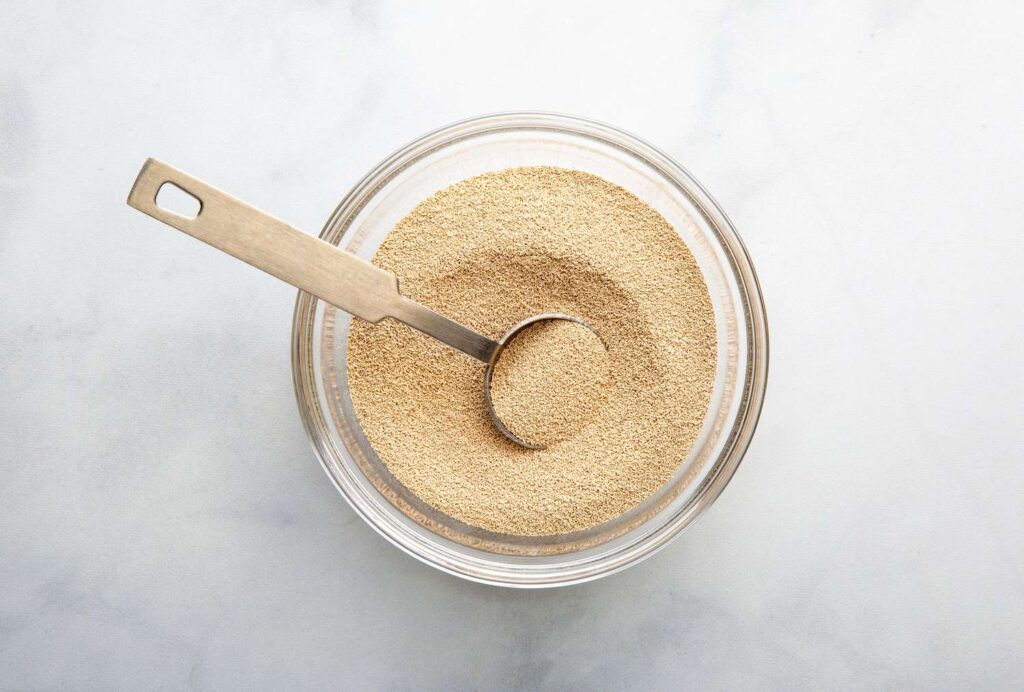Taro is a thick root that has been around for thousands of years.
It is believed to have originated in regions of Asia and India in particular and is currently considered one of the world’s most well-known food items.
Taro is found in abundance in Egypt, Japan, the United States of America, Spain, and Fiji.
It is preferable to consume taro cooked, because eating it raw may be toxic due to taro’s high calcium oxalate content, which can be reduced by soaking taro overnight or by cooking it with baking soda.
Nutrients in taro:
Taro is rich in the following nutrients:
Vitamins, such as Vitamin A (Vitamin A), Vitamin C, Vitamin E, Vitamin B6 (Pyridoxine), and Folic acid.
Dietary fiber in high proportions.
Healthy minerals, such as: magnesium, iron, zinc, phosphorus, potassium, manganese, and copper.
Benefits of taro:
The benefits of taro are many and amazing, here are the most important of them as follows:
Improves eye health:
Taro is one of the foods rich in antioxidants, and beta-carotene. Together, these substances help improve eyesight and vision in general.
Antioxidants help fight free radicals that may cause some eye diseases resulting from aging.
It contributes to preventing the risk of cancer.
Taro may play an important role in preventing the risk of developing various cancers; This is due to its antioxidant activity and the high levels of vitamin A and vitamin C contained in it.
Taro also contains substances that help strengthen the immune system, enhance the body’s defenses, and fight any harmful products of metabolic processes that may cause cancer.
Promotes heart health:
Taro contains high levels of potassium, which is one of the important minerals for the health of the heart and circulatory system, and for protecting against blood diseases or keeping them under control.
Potassium helps regulate the spread and pressure of various fluids in the body within and between cells and prevent fluid retention, thus regulating blood pressure and relaxing the walls of blood vessels.
Supports blood circulation:
Taro’s high content of various minerals, especially copper and iron, helps make taro a good food for preventing anemia and promoting and strengthening blood circulation.
Copper and iron are essential for the production of red blood cells, which carry oxygen and transport it to all parts of the body effectively.
Prevents diabetes:
Taro’s high fiber content helps lower the chances of developing diabetes because dietary fiber regulates the pace of insulin and glucose release in the body.
If a person has diabetes, eating foods rich in fiber, such as taro, helps prevent dangerous increases in blood sugar.
Boosts the body’s immunity:
One of the most important benefits of taro is its role in enhancing and strengthening the body’s immunity, especially with the high levels of vitamin C it contains.
Contributes to reducing excess weight:
Due to its high dietary fiber content, eating taro regularly helps lose excess weight and reduce body fat levels, especially since it makes a person feel full for long periods.
Improves digestive health:
Taro contains a large amount of fiber and starch, which are substances that travel with digested food to the colon, where it becomes the ideal food for beneficial bacteria in the intestines.
To help its growth and development.
It has been found that eating foods rich in fiber helps fight many digestive system diseases, such as colitis and colon cancer.
Warnings and risks:
Despite the many important benefits of taro, you must be aware of some warnings and potential risks associated with eating it, including the following harms:
It leads to obesity when consumed in excess; This is because of its high-calorie content.
It causes heartburn in the mouth and stomach if eaten raw.
It causes bloating and gas in some people.
Taro must also be handled after wearing hand gloves, as taro may contain toxic substances.
Nutritional value of the taro plant:
In addition to the benefits mentioned in our article, taro, and diet, taro may contain many nutritional elements, such as protein, calcium, fiber, and others.
The following are the most important nutrients found in 100 grams of unsalted taro:










